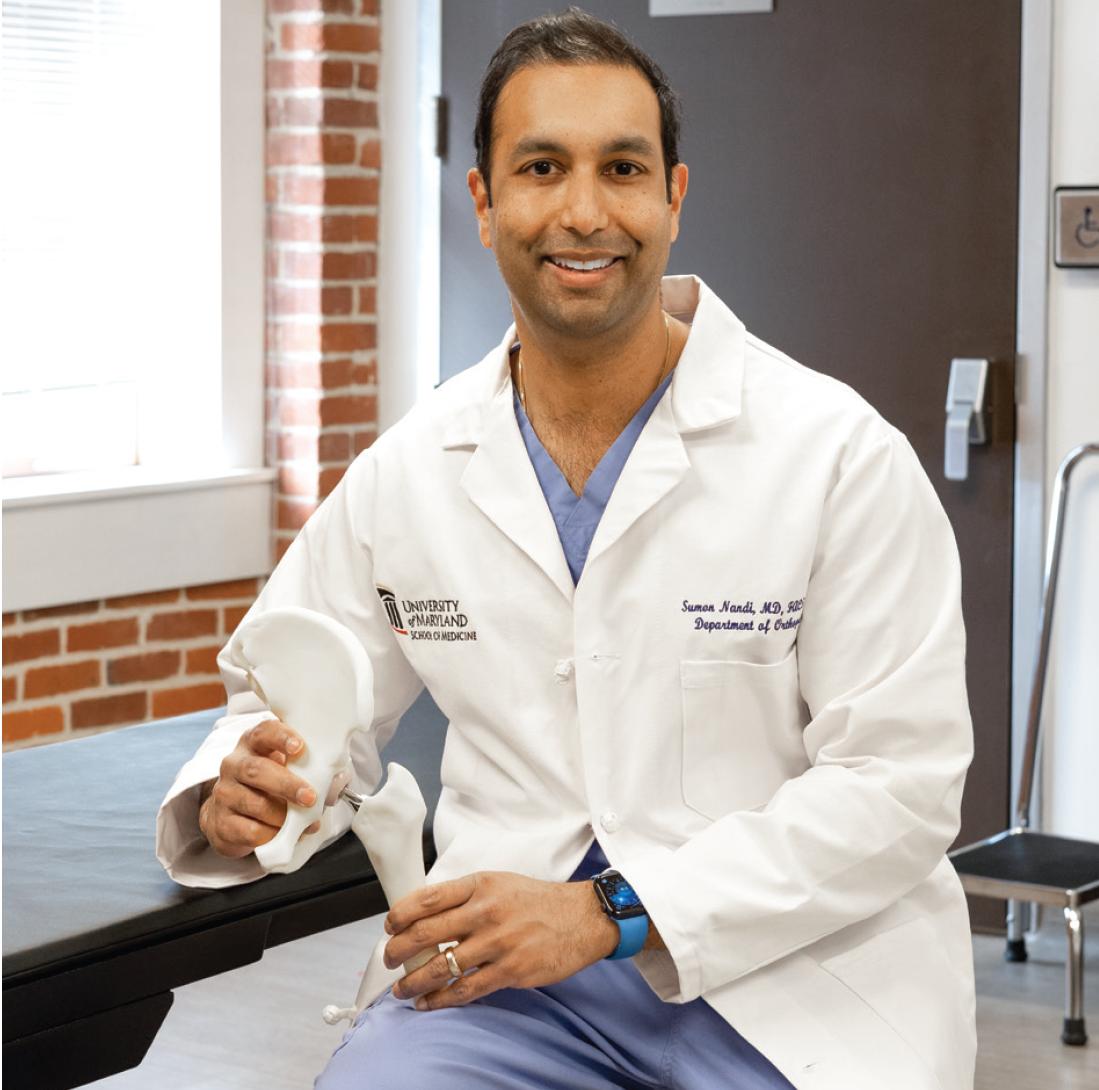Partner Content
 When people think of hip or knee replacement, they may assume a long and painful recovery. This can cause them to delay treatment, which can prolong symptoms and affect quality of life.
When people think of hip or knee replacement, they may assume a long and painful recovery. This can cause them to delay treatment, which can prolong symptoms and affect quality of life.
However, there is a new approach to joint replacement that, for many patients, allows them to leave the hospital the same day of surgery.
To find out more, we spoke with Sumon Nandi, MD, associate professor of orthopaedics and chief of adult reconstruction at the University of Maryland.
Why did you become an orthopaedic surgeon?
In medical school, I was really moved by how important mobility was to an individual’s quality of life and how it is often a part of one’s identity. The orthopaedic surgeons I had the privilege of working with could restore patients to a state of pain-free mobility with a single surgery, which made me want to help patients this way. It is inspiring to see them walking around after surgery when they were previously restricted to use of a walker or wheelchair.
What is your patient care philosophy?
I care for patients as I would hope another physician would care for my own family. An orthopaedic surgeon should be your partner in your joint replacement journey. I try to give honest advice as it relates to an individual patient’s health considerations, and discuss how we might achieve an optimal outcome.
Who should consider a joint replacement?
Total joint replacements of the hip or knee are used for several reasons: patients have arthritis resulting in all of the cushion (cartilage) in the joint wearing away; they’ve tried everything short of surgery (physical therapy, joint injections, anti-inflammatory medications, braces, and assistive devices like a cane/walker) with no relief; and/or their pain prevents them from enjoying desired activities.
How can patients avoid needing this surgery?
Total joint replacements are performed for arthritis, and there is a genetic component to the development of the condition that is not avoidable. Thus, even normal activities may ultimately result in arthritis in many people. At what age arthritis occurs varies—some patients make it into their 90s without significant arthritis, while others may need a joint replacement at the age of 50.
Are you ever too old or too young for a joint replacement?
Research shows knee replacement outcomes are best when a patient is at least 50. There is no such minimum age defined for hip replacement surgery. A total joint replacement surgeon will carefully discuss the degree of arthritis observed on x-rays and the benefits of proceeding or delaying surgery based on a patient’s age.
Describe for us the recovery process.
To achieve the outcome you want, it is critical to discuss your expectations for recovery after surgery and how your surgeon envisions your rehabilitation. We expect all patients to be up and walking the day of surgery. Those eligible for rapid recovery joint replacement can return home the same day. Patients with pre-existing conditions that require monitoring are discharged the morning after surgery. I see my patients back in the office for follow-up two weeks after a knee replacement and six weeks after a hip replacement.
What’s your best advice for a successful replacement?
First, find an orthopaedic surgeon who specializes in hip and knee replacements. Patients should also stop smoking and have any chronic medical problems, like high blood pressure or diabetes, well-controlled. This will help minimize infection risk. Do your best to follow instructions regarding care of your wound and activity after the procedure. Communicate with your surgeon about any questions you have after surgery so they can help guide you to your best possible outcome.
Anything else people should know?
I am exceptionally proud of the care provided by University of Maryland’s joint replacement team. If you think surgery might be for you, I am confident you will find our physicians committed to safety, quality, and an overall outstanding patient experience. I feel fortunate to work with them every day.
 To schedule an in-person or virtual telemedicine appointment with Dr. Nandi, call 410-448-6400. He practices in Columbia, Downtown Baltimore and Hunt Valley.
To schedule an in-person or virtual telemedicine appointment with Dr. Nandi, call 410-448-6400. He practices in Columbia, Downtown Baltimore and Hunt Valley.

